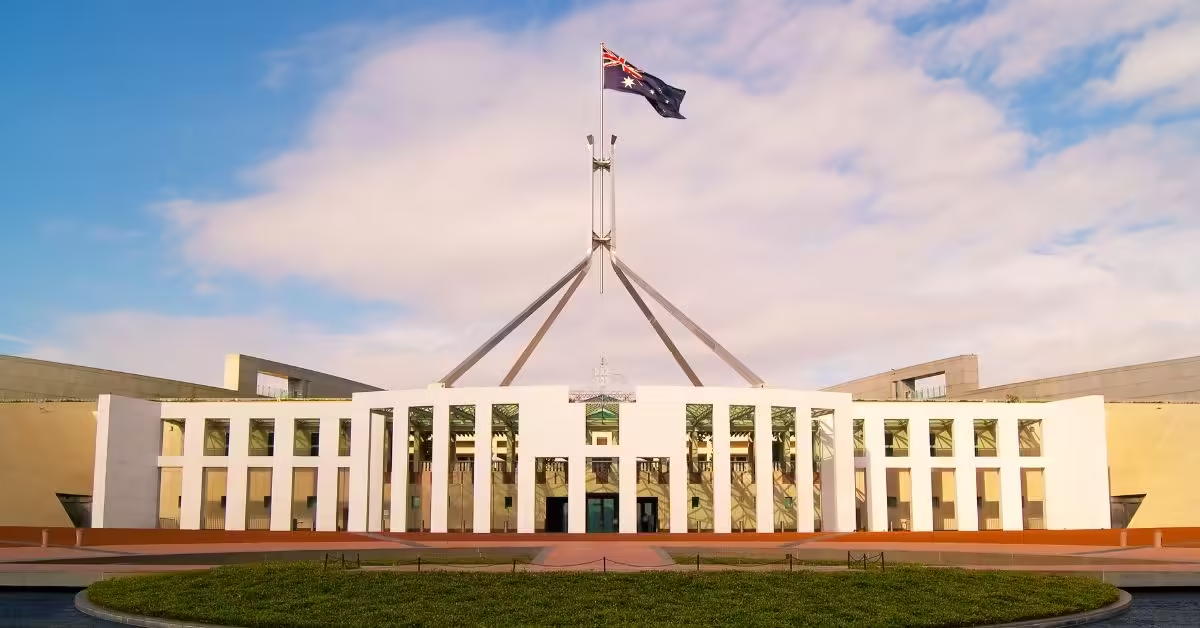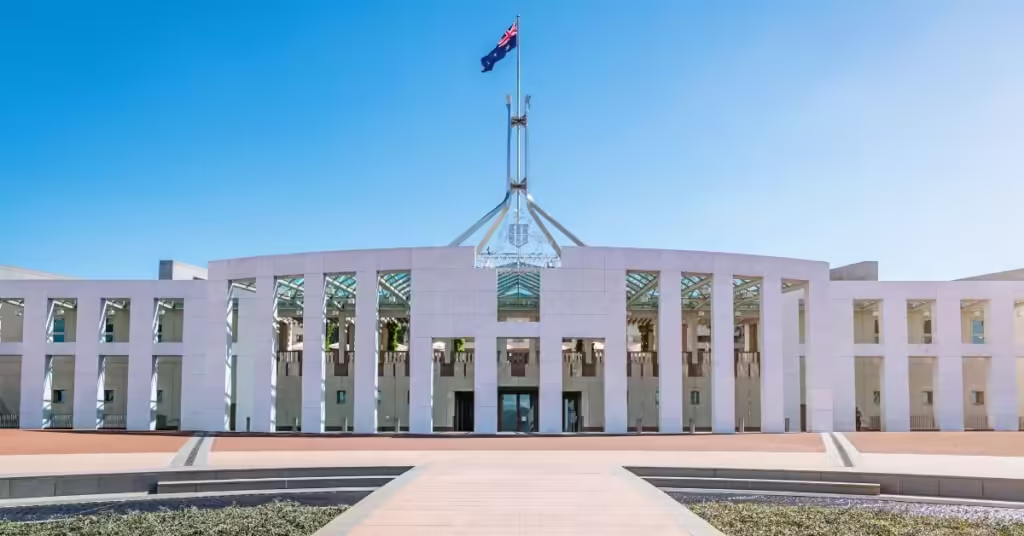Royal Commissions are a Pillar of Public Inquiry and Accountability in Australia.
O’Brien Criminal & Civil Solicitors were involved in the recent Royal Commission into Veterans Suicide. Stay tuned for more on our important work in this Royal Commission. Click here to read more about our other work in Royal Commissions in Australia.
Royal Commissions hold a unique and critical place in Australia’s system of governance. They are a mechanism designed to tackle matters of great public concern, often delving into intricate and controversial issues that demand in-depth examination. In essence, they function as independent public inquiries, serving as an instrument for transparency, accountability, and reform.
Moreover, they provide the government with a structured way to investigate and address societal challenges, particularly when the issues at hand are too complex for standard processes. With their broad powers and extensive scope, Royal Commissions stand as a vital component of Australia’s democratic fabric.
What is a Royal Commission?
At its core, a Royal Commission is an independent public inquiry set up by the government. Typically, these commissions are established in response to significant events or issues that demand thorough investigation. They are often reserved for exceptional circumstances, where routine mechanisms are insufficient to address the scale or complexity of the problem. The primary aim of a Royal Commission is to uncover the facts, scrutinize the situation, and hold parties accountable. In doing so, the inquiry aims to provide informed recommendations for change, whether through legislative reform or policy adjustments.
Furthermore, Royal Commissions operate with an extensive set of powers, enabling them to conduct investigations comprehensively. These powers include the ability to summon witnesses, demand documents, and compel individuals to testify. Additionally, they can hold both public and private hearings, ensuring that the evidence gathered is robust and thorough. This not only allows for detailed scrutiny of the issues at hand but also ensures that the inquiry is conducted transparently, with findings often made public for widespread accountability.
Historical Context of Royal Commissions
The concept of Royal Commissions is not new, with its roots extending back to the 11th century in the United Kingdom. Over the centuries, the structure and purpose of these inquiries evolved, adapting to the changing needs of governance. Australia, as a former British colony, inherited this practice, and since the Federation, Royal Commissions have become a significant tool in the Australian political landscape.
Since 1902, over 130 federal Royal Commissions have been convened in Australia. These commissions have examined a wide array of topics, from crime and corruption to indigenous rights, environmental protection, and public health. For example, Royal Commissions have delved into issues such as child sexual abuse within institutions, the banking sector’s unethical practices, and the controversial Robodebt scheme. This diversity of topics demonstrates the flexibility and wide-reaching nature of these inquiries. They are not restricted to one area of public concern but are deployed whenever there is a need for meticulous examination and public accountability.
The legal basis for these inquiries is primarily found in the *Royal Commissions Act 1902* (Cth), which outlines the procedures and powers of the commissions. This framework ensures that Royal Commissions are equipped with the necessary authority to carry out their investigations effectively, ensuring that the truth is uncovered and justice is served.
The Establishment Process
The creation of a Royal Commission is not a decision made lightly. It requires a formal and structured process, beginning with the recommendation from the Prime Minister. This recommendation is then presented to the Governor-General, who holds the power to formally establish the commission. Once approved, the Governor-General issues Letters Patent, a formal document that outlines the terms of reference for the commission.
The terms of reference are crucial, as they specify the precise issues the commission will investigate. This helps focus the inquiry, ensuring that it does not stray into irrelevant matters. Additionally, the terms of reference establish a timeline for the commission’s work, setting expectations for when the final report will be delivered.
This process of establishment ensures that Royal Commissions are not only focused and goal-oriented but also accountable to the public. Their scope is defined from the outset, and they are expected to work within the framework laid out by the Letters Patent.
Powers and Operations of Royal Commissions
One of the defining characteristics of a Royal Commission is its broad and far-reaching powers. Unlike many other forms of inquiry, a Royal Commission has the legal authority to compel individuals to appear as witnesses, provide testimony, and submit relevant documents. This power to gather evidence is one of the key reasons why Royal Commissions are so effective in unearthing hidden truths and holding those in power accountable. Without such powers, it would be much more difficult to get to the heart of the issues being investigated, especially in cases where individuals or organizations may be reluctant to cooperate.
In terms of its operations, a Royal Commission can hold both public and private hearings. Public hearings are an essential aspect of transparency, allowing the public to witness the inquiry process firsthand. These hearings often attract significant media attention, bringing the issues under investigation into the public consciousness. Private hearings, on the other hand, may be held when sensitive or confidential information is being discussed. This flexibility allows the Royal Commission to adapt to the needs of each case, ensuring that all relevant evidence is brought to light, regardless of its sensitivity.
Royal Commissions also engage extensively with stakeholders through consultations. This process allows the commission to gather a wide range of perspectives, ensuring that all voices are heard, from victims and witnesses to experts and policymakers. The evidence collected throughout the inquiry forms the foundation for the commission’s final report, which includes a detailed analysis of the findings and a series of recommendations for change.
Once the final report is completed, it is presented to the Governor-General and subsequently tabled in Parliament. This ensures that the findings are formally recognized and that the government has an opportunity to respond to the recommendations in a structured and transparent manner.
Outcomes and Impact
While the findings of a Royal Commission are not legally binding, they carry significant weight. Governments are not obliged to implement the recommendations, but they are typically expected to provide a formal response. In many cases, Royal Commissions have led to substantial legislative and policy reforms, demonstrating their power to effect meaningful change.
For example, the Royal Commission into Institutional Responses to Child Sexual Abuse uncovered systemic failings within various institutions, leading to widespread reform in child protection laws and policies. Similarly, the Royal Commission into Misconduct in the Banking, Superannuation and Financial Services Industry exposed unethical practices in the financial sector, prompting significant changes to banking regulations and corporate governance.
Even when the recommendations of a Royal Commission are not immediately implemented, the findings can still have a lasting impact by influencing public debate and shaping future policy decisions. By bringing important issues into the public domain, Royal Commissions play a key role in driving accountability and reform.

Notable Recent Royal Commissions
In recent years, several high-profile Royal Commissions have captured national attention and underscored the continuing relevance of these inquiries. One such example is the Royal Commission into Misconduct in the Banking, Superannuation and Financial Services Industry, which revealed widespread unethical practices across the financial sector. This inquiry led to a range of reforms, including tighter regulations and increased oversight of financial institutions. The commission’s work not only exposed malpractice but also prompted a national conversation about ethics and corporate responsibility.
Another notable Royal Commission was the inquiry into Institutional Responses to Child Sexual Abuse. This landmark investigation revealed shocking instances of abuse within religious institutions, schools, and other organizations. The commission’s recommendations led to significant reforms in child protection policies, ensuring that the safety of children is given greater priority in institutional settings.
The Robodebt Royal Commission, which investigated the government’s controversial debt recovery program, is yet another example. The commission exposed significant failings in the implementation of the scheme, resulting in compensation for affected individuals and reforms to welfare debt recovery processes.
These inquiries demonstrate the far-reaching impact that Royal Commissions can have, not only in terms of policy and law reform but also in holding powerful institutions and individuals to account.
How important are Royal Commissions?
In summary, Royal Commissions are a vital instrument in Australia’s system of governance. They provide an independent and structured means of investigating issues of significant public concern, allowing for in-depth scrutiny and public accountability. Their ability to compel evidence and conduct thorough investigations ensures that they are well-equipped to tackle complex and controversial issues, from corruption and abuse to financial misconduct and public health failures.
Moreover, while their findings may not be legally binding, the weight of their recommendations often leads to significant changes in laws, policies, and public attitudes. In this way, Royal Commissions not only address immediate issues but also contribute to long-term reforms that strengthen the integrity and transparency of Australia’s institutions.
Through their work, Royal Commissions play a critical role in ensuring that the government and other institutions remain accountable to the people they serve. They bring important issues to light, drive meaningful change, and uphold the principles of justice and fairness in the face of societal challenges.

- Nicole Byrnehttps://obriensolicitors.com.au/author/nicolebyrne964/
- Nicole Byrnehttps://obriensolicitors.com.au/author/nicolebyrne964/
- Nicole Byrnehttps://obriensolicitors.com.au/author/nicolebyrne964/
- Nicole Byrnehttps://obriensolicitors.com.au/author/nicolebyrne964/




